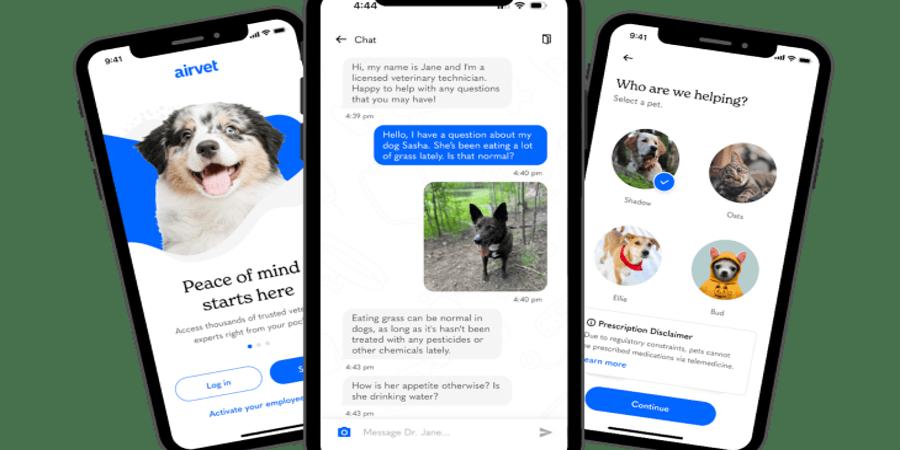Pet ownership exploded during the global pandemic, and veterinarians are still struggling to keep up with demand.
In fact, a Mars Veterinary Health report from 2022 highlighted a need for more than 41,000 vets to enter the industry over the next decade in order to meet demand. Not enough people are going into this field, which means there will be an estimated shortage of 15,000 veterinarians by 2030.
Pet telehealth company Airvet is out to help them, buoyed by $18.2 million in new Series B funding. We last profiled the company in 2020 when it raised its $14 million Series A round.
CEO Brandon Werber, whose father is well-known vet Dr. Jeff Werber, started the company in 2018 to connect pet parents with practicing veterinarians for telehealth visits any day, any time.
“The vet shortage is going to make it very expensive and very, very difficult to get care for your pets when they’re sick,” Werber said. “So many vets today are not taking new clients at all. They’re just telling you to go find another vet, go to an urgent care or an ER. The problem is most people can’t afford impromptu trips to the vet. It’s really expensive.”
Indeed, with U.S. pet care estimated to grow from $118 billion in 2019 to $277 billion by 2030, all of this need provides an opportunity for technology to help.
Not only has that attracted startups, but venture capitalists as well.
Companies like Digitail, Mixlab, The Vets and Dutch, to name a few, came on in recent years with solutions to help vets. Newer startups are coming in as well: Mascotte Health, a UAE-based veterinary service provider, announced $1.2 million in pre-seed funding this month, while Maven Pet recently raised $3 million to use AI to detect early onset of serious illnesses in dogs and cats, according to Guilherme Coelho, co-founder and CEO.
However, even with the need for more veterinarian services, not every company’s business model has succeeded. For example, Fuzzy, a company that created a digital pet care network of veterinary professionals, and raised $80 million in venture-backed funding since its founding in 2016, reportedly shut down in June.
Watching what happened to Fuzzy, and trying to keep a company going amid a market shift, put things into perspective, Werber said.
“When the markets shifted, it put back into focus that you can’t just build fast and recklessly,” he said. “You have to build with an eye and a path towards profitability, healthy margins, healthy unit economics and building a real scalable business. We had to take hard looks at our model and our strategy.”
Business approaches in the pet tech space run the gambit, but have largely focused on direct-to-consumer healthcare or helping veterinarians more easily manage their practices amid the demand.
For Airvet’s part, Werber said he saw an opportunity to target business-to-business. The company has since built up a base of employer clients, including Adobe, Ceridian and Rexford Industrial, eager to offer an employer-sponsored benefit for employees with pets.
Werber declined to go into specifics about customer or revenue growth, but said he expects Airvet to reach over 50 customers in the next year and that revenue was “growing at a faster rate than before.”
Meanwhile, the company’s Series B round was led by Mountain Group Partners with participation from Canvas Ventures, Headline, Burst Capital and a group of strategic investors, including VCA Animal Hospitals founder Bob Antin. This gives Airvet just over $33 million in total funding. As part of the investment, Byron Smith, managing director at Mountain Group Partners, will join the company’s board.
The funding will support the continued expansion of Airvet’s partnership with enterprise and employer clients, on product development and to build out the company’s sales and marketing teams.
“The biggest plans for us now are to really build this category into a ubiquitous category for all employers and enterprises who want to acknowledge, support and celebrate pet families and provide services and resources for them in areas where they are really struggling,” Werber said. “A big part of that is access and affordability of pet care.”
Source @TechCrunch



